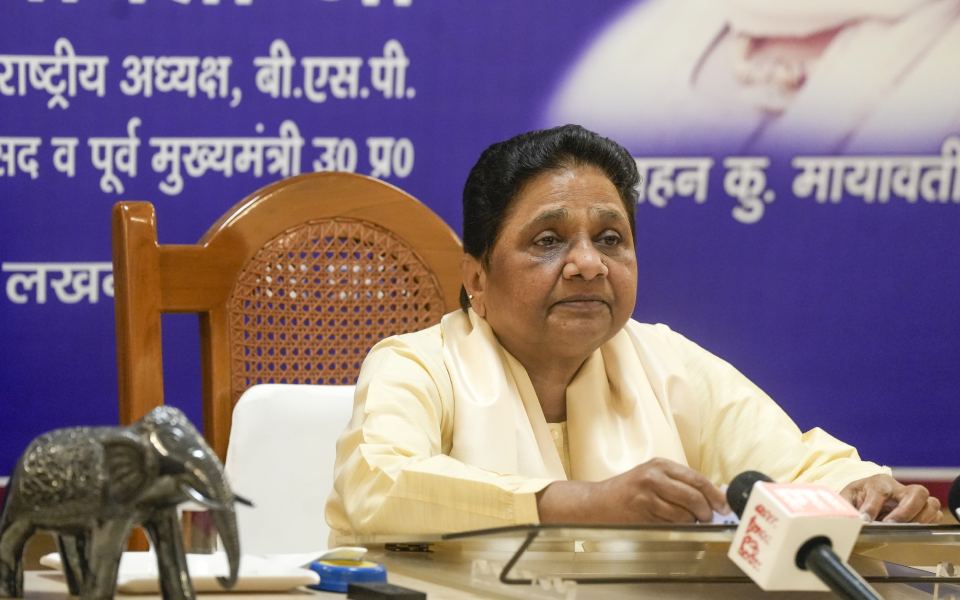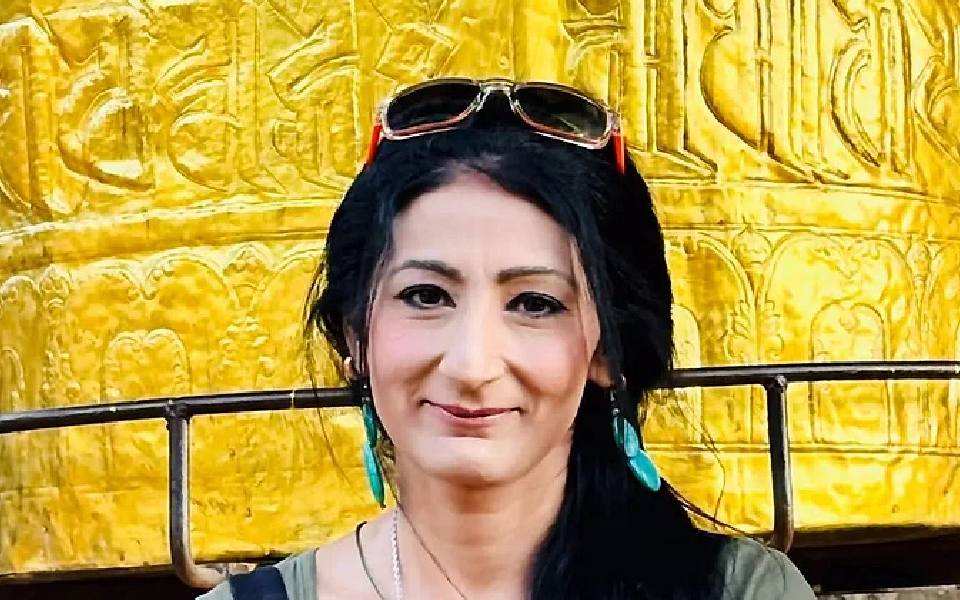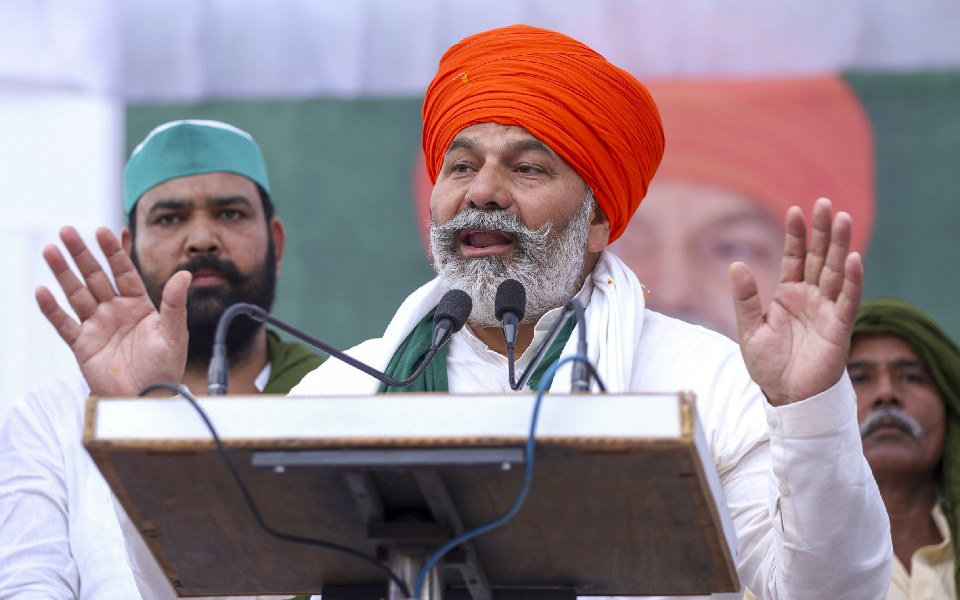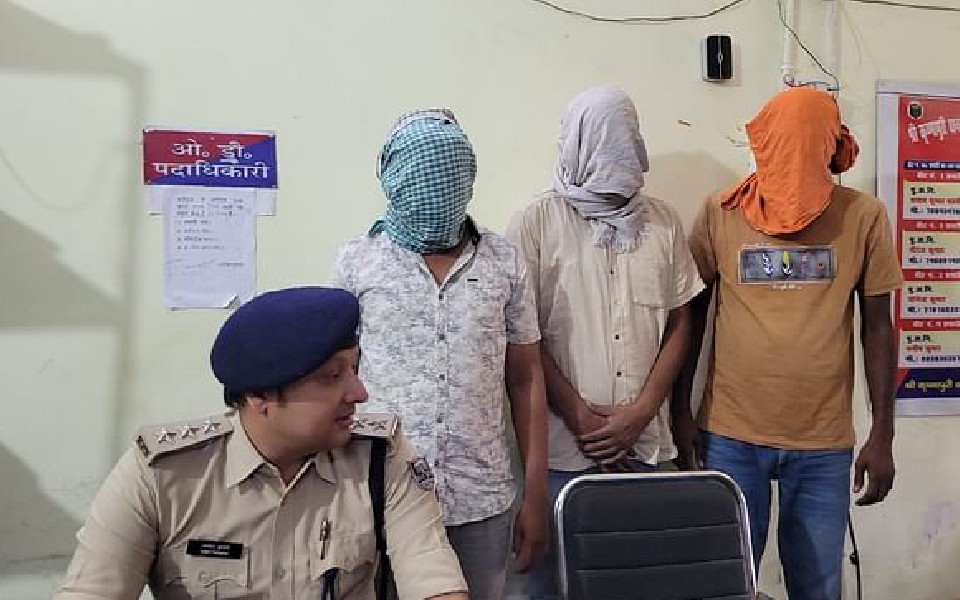Lucknow, Apr 10 (PTI): Bahujan Samaj Party (BSP) chief Mayawati on Thursday asked the Centre to reconsider the provisions in the new Waqf law and suspend it for the time being.
Mayawati noted that the recently passed Act's provision of including non-Muslims in the Waqf Board prima facie does not appear good.
"The provision allowing a non-Muslim to be a part of the State Waqf Board appears to be wrong and the Muslim community is also raising objections to it. It would be better if the central government reconsidered and suspended the Waqf Act to reform other similar controversial provisions," Mayawati told select news agencies in Lucknow on Thursday.
Parliament approved the Waqf (Amendment) Bill, 2025 on April 4 after the Rajya Sabha gave its nod to the contentious legislation following an over 13-hour debate.
The Bill was passed in the Rajya Sabha with 128 members voting in favour and 95 opposing it. It was passed in the Lok Sabha on April 3, with 288 members supporting it and 232 against it. President Droupadi Murmu gave assent to the Bill on April 5.
Mayawati further said like the long-standing demand of Buddhist monks and followers for the sole control over the management of the Mahabodhi Temple in Bodh Gaya, the Muslim community too has raised genuine concerns about external interference in their religious matters.
"The BSP demands that the Centre immediately halt the implementation of the Waqf Act and address the concerns through necessary amendments. Just as Buddhists have protested the Mahabodhi Temple Management Act of 1949 -- enacted during the Congress era -- Muslims are also justified in opposing unnecessary interference in their religious affairs," she said.
Referring to the 1949 Bodh Gaya Temple Act, Mayawati pointed out that it allows for a management committee comprising four Hindus and four Buddhists, chaired by the district magistrate.
"This very structure is discriminatory and inappropriate, and a violation of the secular spirit of the Indian Constitution," she said.
"The Mahabodhi temple is a revered pilgrimage site for Buddhists across the world. Its management and religious duties should rest solely with Buddhist monks and followers. Government interference has led to tension and dissatisfaction among the Buddhist community," Mayawati added.
Drawing parallels, she said religious autonomy and management should lie with those who follow the faith.
"Whether it's the Waqf Board or the Bodh Gaya Temple, government interference, especially by members of other religions, creates avoidable disputes. The government must ensure that religious institutions are managed by those who practice the faith," she asserted.
Mayawati appealed to the NDA governments at the Centre and in Bihar to amend the Bodh Gaya Temple Act in accordance with constitutional secularism and the long-standing demands of the Buddhist community.
She reiterated the BSP's position that all religious communities should be given the autonomy to manage their religious institutions.
"Governments must shed political motives and act strictly according to the Constitution when dealing with religious issues. It is in the best interest of the nation," she said.
Let the Truth be known. If you read VB and like VB, please be a VB Supporter and Help us deliver the Truth to one and all.
London/New Delhi: Professor Nitasha Kaul, a London-based academic, announced on May 18, 2025, via a social media post that her Overseas Citizenship of India (OCI) card has been cancelled by the Indian government. She described the move as a "bad faith, vindictive, cruel example of transnational repression" intended to punish her for her scholarly work critical of the Modi government's policies concerning minorities and democracy.
The cancellation follows an incident in February 2024 when Professor Kaul, who holds a British passport and held an OCI card, was denied entry into India upon arrival at Bengaluru airport. She had been invited by the then Congress-led Karnataka state government to speak at a conference on "The Constitution and Unity in India."
According to an image of the letter shared by Professor Kaul, the Indian government stated that it had been "brought to the notice of the Government of India that you have been found indulging in anti-India activities, motivated by malice and complete disregard for facts or history." The letter further accused her of regularly targeting India and its institutions on matters of India's sovereignty through "numerous inimical writings, speeches and journalistic activities at various international forums and on social media platforms."
Professor Kaul, who is a Professor of Politics, International Relations, and Critical Interdisciplinary Studies and the Director of the Centre for the Study of Democracy (CSD) at the University of Westminster, London, vehemently rejects these accusations. She stated she had provided a 20,000-word response to what she termed the government's "ridiculous inanity about ‘anti-India’," but the OCI was cancelled through a "rigged process."
In her social media posts, Professor Kaul lamented the decision, questioning how the "mother of democracy" could deny her access to her mother in India. She characterized the action as stemming from "thin-skinned, petty insecurity with no respect for well-intentioned dissent."
The February 2024 denial of entry had already sparked controversy. At the time, immigration officials reportedly cited "orders from Delhi" without providing formal reasons, though Professor Kaul mentioned informal references to her past criticism of the Rashtriya Swayamsevak Sangh (RSS). The Ministry of External Affairs had then responded by stating that the entry of foreign nationals into India is a "sovereign decision." Unofficial government sources had indicated that a "preventive lookout circular" was issued against her due to her alleged "pro-separatist" and "anti-India" stance on Kashmir.
The BJP in Karnataka had criticised the state government for inviting her, labelling her an "anti-India element." Conversely, the then-Karnataka government and various international human rights organizations and academic bodies had condemned the denial of entry.
Professor Kaul has been an outspoken commentator on Indian politics, including the abrogation of Article 370 in Jammu and Kashmir, and has testified before international bodies such as the US Congress on human rights in the region. She maintains her work is academic and pro-democracy, not anti-India.
The cancellation of her OCI card effectively bars her from entering India, a country to which she has personal and academic ties. This incident adds to a growing list of academics, journalists, and activists of Indian origin whose OCI status has been revoked or who have been denied entry to India in recent years, raising concerns about freedom of speech and dissent. Reports indicate that over 100 OCI cards were cancelled by the Indian government between 2014 and May 2023. Furthermore, in 2021, new rules were introduced requiring OCI cardholders to obtain special permission for activities such as research and journalism.





